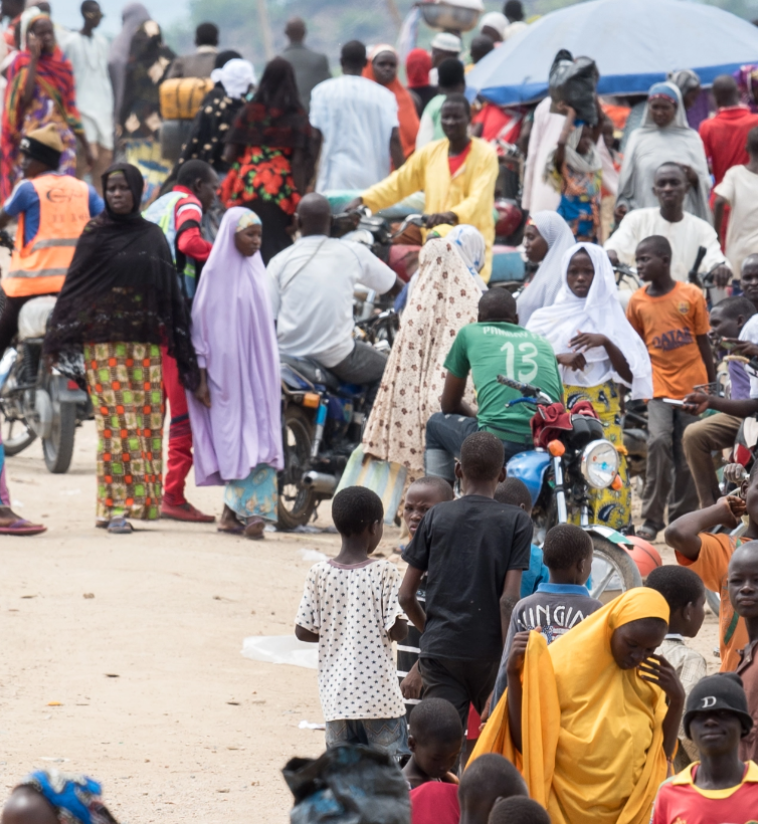
Context
The World We Are Part Of
The past two decades have seen enormous strides in many fields of human development. The number of people living in poverty has declined greatly on all continents; undernourishment has been halved globally; maternal and child mortality rates have fallen in all regions; and the number of children going to school and accessing quality education has risen steadily. Access to basic services has improved and basic human, economic, social, and cultural rights have been achieved for larger numbers than ever before.
International cooperation has resulted in a global agreement on how to combat climate change. The Human Rights Council has been established and global collaboration to address the common challenges of climate change has taken significant steps forward. Many countries in Latin America, Asia, and Africa have seen sustained periods of steady growth, progress in many social sectors and political liberties and increased well-being for all citizens. Development in digitalization, technological innovations, access to information, and connectivity provide unprecedented opportunities for positive change in the lives of the poor and marginalized at a global level.
At the same time, however, the world is currently witnessing the steady rise of internally displaced people and refugees to unprecedented numbers, with the United Nations High Commissioner for Refugees (UNHCR) reporting more than 65 million people forced to leave their homes in 2017, more than half of these children.
Violence, war, insecurity, and complex, protracted disasters are made worse by the negative effects of climate change.
The rise in religious extremism and the politicization of religion adds to the complexity of many humanitarian contexts. A global growth in populist and nationalist politics has led to increased discrimination against migrants and refugees, contempt for international human rights law, principles, and values, and the politicization of development assistance.
Humanitarian frameworks are overstretched and unable to provide an adequate response to critical situations in many parts of the world. International political processes intended to end conflict and limit its impact are proving impotent.
Since the Paris Declaration was signed in 2016, scientific reports from many academic and research institutions confirm the rapid acceleration of climate change, reporting more rapid warming than expected in the Polar Regions and in global average temperatures. The effect of these changes is disproportionately felt by the most vulnerable populations, including women and girls, and serves as one root cause of many protracted conflicts.
Significant evidence of the shrinking space of civil society affects the capacity of humanitarian and development organizations to work in many countries. The security of our staff is increasingly a concern in environments where the legitimacy and relevance of the work is questioned, and the accountability of governments remains weak toward their citizens.
Deep-rooted instability, increasing inequality between the rich and the poor, weakening support for human rights, and the limited capacity of states to provide all their citizens with basic services have significant bearing on the working environment of World Service. Social cohesion and conducive environments for human development, collaboration, and prosperity are threatened in many places in the world.
Important international processes intended to bring humanitarian action closer will shape the humanitarian and development environment for decades to come.
Such action must work on resilience, disaster preparedness, and development focusing on livelihoods, using all possible resources to address the root causes of conflict and displacement.
Central to this action are the Sustainable Development Goals (SDGs), the Grand Bargain, the Istanbul Principles, and the processes to develop Global Compacts on Refugees and Migration. In these debates, the important issues related to funding, transparency, accountability, collaboration with the private sector and safeguarding are where sustained engagement and dialogue will be needed to improve the quality and effectiveness of work in this field.
All of these elements shape the working environment of LWF World Service, which continues to be well-placed to address the challenges of conflict and instability in the world today and tomorrow.
Important international processes intended to bring humanitarian action closer will shape the humanitarian and development environment for decades to come.

